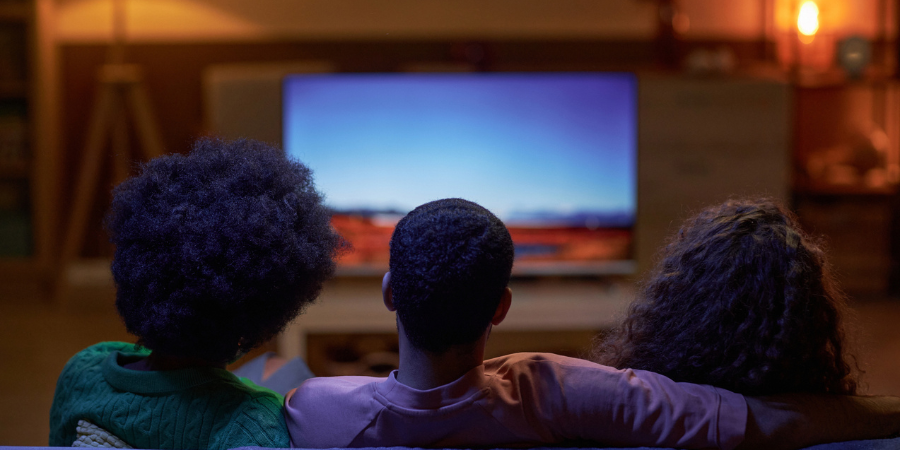University News Last updated 29 July 2025

A new report from BCU is calling for more real and relatable stories about marginalised communities on television, radio and streaming platforms.
Authentic Portrayal in UK Media: Insights from Expert Panels on Race, Disability, and Class explored the representation of racially minoritised, disabled, and working-class people.
The research was carried out by the Sir Lenny Henry Centre for Media Diversity (LHC) and included input from expert panels made up of people with lived experience, campaigners, academics and media professionals.
One of the key findings was that these communities are often invisible - or shown in narrow, negative ways. Instead, they want more well-rounded, joyful stories that reflect real life.
“I’m delighted that this report brings together leading media and diversity experts to offer clear, actionable recommendations for more authentic and inclusive storytelling,” said report co-author Panayiota Tsatsou, Professor of Media Diversity at BCU.
“By centring the lived experiences of disabled individuals, working-class communities, and racial minorities, we aim to generate meaningful change in how the media represents and engages with diverse audiences.
“These recommendations represent a vital step forward in advancing equity and inclusion across media content and production, both on and off screen.”
BCU Chancellor, Ade Adepitan, set up his own media production company to give more mainstream opportunities to disabled talent.
“This research is a key step in highlighting how beneficial diversity can be on our screens, when it's done right," said Ade. "But, both on and off screen, the industry is still falling short.
“It's important to move away from victim-tropes for disabled characters as it suggests disability limits people and their aspirations. Our everyday lives are full of joy and humour, that needs to be shown too.
“LHC and its research is one of the reasons that I wanted to join BCU. I hope that we can see these findings start to shape the industry in a more positive way."
The report urges media companies to support change by investing in community-led ideas and frameworks to support inclusive storytelling.
“Conducting research such as this is exactly what the LHC was set up to do,” said Professor Diane Kemp, Director of the LHC and Professor of Broadcast Journalism at BCU.
“While most research tends to focus on data, roles behind the camera and structures within the media, these panels highlight why those things are important.
“Their reflection on the lack of joy and complexity in peoples’ lives as portrayed on TV and film is why there needs to be a shift in attitude and culture within the industry.”
The report was authored by Sarah Bristol-Abbott, a doctoral researcher at BCU, Professor Panayiota Tsatsou, and Dr Ngozi Marion Emmanuel, part of LHC’s research team.